
Unofficial jazz documentarian Boris Rose captured these recordings on reel-to-reel tape of the Bill Evans Trio in 1960, an artistically fulfilling concert at Birdland in NYC and a rare recording of this particular trio with bassist scott LaFaro and drummer Paul Motian; originally issued in 1992 on the Cool & Blue label, here properly restored and remastered.
In Stock
Quantity in Basket: None
Log In to use our Wish List
Shipping Weight: 3.00 units
EU & UK Customers:
Discogs.com can handle your VAT payments
So please order through Discogs
Sample The Album:
Bill Evans-piano
Scott LaFaro-double bass
Paul Motian-drums
Click an artist name above to see in-stock items for that artist.
UPC: 752156116721
Label: ezz-thetics by Hat Hut Records Ltd
Catalog ID: ezz-thetics 1167
Squidco Product Code: 34376
Format: CD
Condition: New
Released: 2024
Country: Switzerland
Packaging: Cardboard Gatefold
Recorded live in Birdland, New York City, in 1960.
Originally released in 1992 with the title The Legendary Bill Evans Trio - The 1960 Birdland Sessions as a compact disc on the Cool & Blue Records label with catalog code C&B-CD106.
"Thank you, Boris Rose. The obsessive New York jazz maverick set out to record every musician of note who performed in the city's clubs from the mid 1940s through the mid 1970s. He must have come close to succeeding. His vast accumulated horde of tapes - today presumed more or less safe, stacked floor to ceiling in a sizeable Bronx basement under the guardianship of his daughter Elaine - is a treasure beyond mere monetary value. Annotated but uncatalogued, there are many hundreds, perhaps thousands, of tape boxes, and shelves full of acetates, too. Somewhere among them, if they have not been lost, are the Bill Evans/Scott LaFaro/Paul Motian recordings on this disc, plus maybe upwards of another forty minutes of material (more about those below). Ten years ago, Elaine offered the collection to the Library Of Congress for a rumoured $1m but the price was considered too high. The house, as Charlie Parker said to Dean Benedetti when presented with a bar bill at Billy Berg's, is cheap.
Many of Rose's recordings, such as these treasures from Symphony Sid Torin's live broadcasts on station WADO, were made with a reel-to-reel tape recorder, off the radio in Rose's East 10th Street apartment. Others were made in the clubs themselves, on a bulky pre-miniaturisation machine, its concealment no easy task. From 1946 onwards, Rose, who had a disc-cutter at home, made a living selling acetates and, later, privately pressed LPs, to fellow collectors, from his apartment and through the mail. Specialist record stores stocked his albums. Rose released the material on this disc on two LPs, A Rare Original and Hooray For Bill Evans Trio, in the mid 1970s.
Obtaining artist permissions was not part of Rose's business model. Joe LaBarbera, the drummer in Evans' final trio, has said that Evans was outraged when he came across one of Rose's LPs in a European record store in 1979 or 1980. On one level, we empathise. On another, we are indebted to Rose.
This Birdland material - here in its known entirety and, at long last, having received the state-of-the-art sound restoration it deserves - represents a substantial portion of the paradigm shifting Evans/LaFaro/Motian trio's discography. Apart from fourteen minutes accompanying Tony Scott on two tracks of the clarinetist's "Sung Heroes", which do not really count, less than six hours of recordings (including the Birdlands) are one-hundred-per-cent known to exist. Sadly, the only Dean Benedetti figure in Evans' orbit appears to have been an amateur pianist named Mike Harris, who taped many hours of Evans' performances at the Village Vanguard, with Evans and club owner Max Gordon's knowledge. But Harris only got going after LaFaro had passed.
This Revisited disc chronicles the trio in transition. Formed in autumn 1959, the group recorded its debut album in December. Following a coast-to-coast tour, it opened at Birdland in March 1960, when the first five tracks here were recorded on two separate dates. Already cooking, by the time of the April and May recordings the trio was touching on the interactive magic heard on ezz-thetics' At The Village Vanguard 1961 Revisited.
It is possible that previously unreleased Evans/LaFaro/Motian live recordings may yet emerge from under the apocryphal late grandmother's bed, or more likely from the cellar in the Bronx. Simple arithmetic suggests that Rose must have recorded more material than he was able to include on just two LPs. At Birdland, the trio, a support attraction, played their set sometime between midnight and 1:00am on each of the Saturday a.m. sessions Rose taped, sandwiched by sets from the headlining artist. If the trio only played for half an hour on each occasion (a conservative estimate), that adds up to two hours of material, too much for two LPs. Somewhere in that Bronx basement, another forty-plus minutes may still be found.
The Birdland audience makes its presence felt; they can be heard in the background, having a good time. Most of them were there to hear the main attraction. In 1960, the club was the New York base for Count Basie's band when it was not on tour (Birdland was co-owned by the gangster-cum-businessman Morris Levy, who also controlled Roulette Records, for whom Basie recorded at the time). It is known that Basie's band was resident for the two March sessions here, and it may also have headlined in April and May.
But by 1960 Evans had become inured to inattentive club audiences. He was also used to insensitive staff. Recalling his first engagement at the Village Vanguard, in 1955, playing opposite the MJQ, Evans told his British friend Brian Hennessey: "It's a triangular club and the bandstand is in the apex of the triangle and there are a few seats that are sort of behind the bandstand. And while I was playing one night, the maître d' brought a party of four up while I was playing - I stopped, he said excuse me - and he led them between me and the keyboard to that table."
By the time he told the story, Evans could see the humour in it. Maybe in 2023 he would see the upside of Boris Rose's activities as well."-Chris May, October, 2023
Artist Biographies
• Show Bio for Bill Evans "William John Evans (August 16, 1929 - September 15, 1980) was an American jazz pianist and composer who worked primarily as the leader of his trio. His use of impressionist harmony, interpretation of traditional jazz repertoire, block chords, and trademark rhythmically independent, "singing" melodic lines continues to influence jazz pianists today. Born in Plainfield, New Jersey, United States, he was classically trained at Southeastern Louisiana University and the Mannes School of Music, in New York City, where he majored in composition and received the Artist Diploma. In 1955, he moved to New York City, where he worked with bandleader and theorist George Russell. In 1958, Evans joined Miles Davis's sextet, which in 1959, then immersed in modal jazz, recorded Kind of Blue, the best-selling jazz album ever. In late 1959, Evans left the Miles Davis band and began his career as a leader, with bassist Scott LaFaro and drummer Paul Motian, a group now regarded as a seminal modern jazz trio. In 1961, two albums were recorded at an engagement at New York's Village Vanguard jazz club, Sunday at the Village Vanguard and Waltz for Debby; a complete set of the Vanguard recordings on three CDs was issued decades later. However, ten days after this booking ended, LaFaro died in a car accident. After months of seclusion, Evans reemerged with a new trio, featuring bassist Chuck Israels. In 1963, Evans recorded Conversations with Myself, a solo album produced with overdubbing technology. In 1966, he met bassist Eddie Gómez, with whom he worked for the next 11 years. During the mid-1970s Bill Evans collaborated with the singer Tony Bennett on two critically acclaimed albums: The Tony Bennett/Bill Evans Album (1975) and Together Again (1977). Many of Evans's compositions, such as "Waltz for Debby" and "Time Remembered", have become standards, played and recorded by many artists. Evans received 31 Grammy nominations and seven awards, and was inducted into the DownBeat Jazz Hall of Fame." ^ Hide Bio for Bill Evans • Show Bio for Scott LaFaro "Rocco Scott LaFaro (April 3, 1936 - July 6, 1961) was an American jazz double bassist known for his work with the Bill Evans Trio. LaFaro broke new ground on the instrument, developing a countermelodic style of accompaniment rather than playing traditional walking basslines, as well as virtuosity that was practically unmatched by any of his contemporaries. Despite his short career, he remains one of the most influential jazz bassists, and was ranked number 16 on Bass Player magazine's top 100 bass players of all time." ^ Hide Bio for Scott LaFaro • Show Bio for Paul Motian "Stephen Paul Motian (March 25, 1931 - November 22, 2011) was an American jazz drummer, percussionist, and composer. Motian played an important role in freeing jazz drummers from strict time-keeping duties. He first came to prominence in the late 1950s in the piano trio of Bill Evans, and later was a regular in pianist Keith Jarrett's band for about a decade (c. 1967-1976). Motian began his career as a bandleader in the early 1970s. Perhaps his two most notable groups were a longstanding trio of guitarist Bill Frisell and saxophonist Joe Lovano, and the Electric Bebop Band which featured the drummer working mostly with younger musicians doing interpretations of bebop standards. Motian was born in Philadelphia, Pennsylvania, and raised in Providence, Rhode Island. He is of Armenian descent. After playing guitar in his childhood, Motian began playing the drums at age 12, eventually touring New England in a swing band. During the Korean War he joined the Navy. Motian became a professional musician in 1954, and briefly played with pianist Thelonious Monk. He became well known as the drummer in pianist Bill Evans's trio (1959-64), initially alongside bassist Scott LaFaro and later with Chuck Israels. Subsequently, he played with pianists Paul Bley (1963-64) and Keith Jarrett (1967-76). Other musicians with whom Motian performed and/or recorded in the early period of his career included Lennie Tristano, Warne Marsh, Lee Konitz, Joe Castro, Arlo Guthrie (Motian performed briefly with Guthrie in 1968-69, and performed with the singer at Woodstock), Carla Bley, Charlie Haden, and Don Cherry. Motian subsequently worked with musicians such as Marilyn Crispell, Bill Frisell, Leni Stern, Joe Lovano, Alan Pasqua, Bill McHenry, Stéphan Oliva, Frank Kimbrough, Eric Watson and many more. Later in his career, Motian became an important composer and group leader, recording initially for ECM Records in the 1970s and early 1980s and then for Soul Note, JMT, and Winter & Winter before returning to ECM in 2005. From the early 1980s he led a trio featuring guitarist Bill Frisell and saxophonist Joe Lovano, occasionally joined by bassists Ed Schuller, Charlie Haden, or Marc Johnson, and other musicians, including Jim Pepper, Lee Konitz, Dewey Redman and Geri Allen. In addition to playing Motian's compositions, the group recorded tributes to Thelonious Monk and Bill Evans, and a series of Paul Motian on Broadway albums, featuring original interpretations of jazz standards. Despite his important associations with pianists, Motian's work as a leader since the 1970s rarely included a pianist in his ensembles and relied heavily on guitarists. Motian's first instrument was the guitar, and he apparently retained an affinity for the instrument: in addition to his groups with Frisell, his first two solo albums on ECM featured Sam Brown, and his Electric Bebop Band featured two and occasionally three electric guitars. The group was founded in the early 1990s, and featured a variety of young guitar and saxophone players, in addition to electric bass and Motian's drums, including saxophonists Joshua Redman, Chris Potter, Chris Cheek, and Tony Malaby, and guitarists Kurt Rosenwinkel, Brad Shepik, Wolfgang Muthspiel, Steve Cardenas, Ben Monder, and Jakob Bro. In 2011 Motian featured on a number of new recordings, including Live at Birdland (with Lee Konitz, Brad Mehldau and Charlie Haden), Samuel Blaser's Consort in Motion, No Comment by Augusto Pirodda, and Further Explorations with Chick Corea and Eddie Gómez. Bill McHenry's Ghosts of the Sun was released - by coincidence - on the day of Motian's death. Motian's final album as bandleader was The Windmills of Your Mind, featuring Bill Frisell, Thomas Morgan and Petra Haden. Motian died on November 22, 2011 at New York's Mount Sinai Hospital of complications from myelodysplastic syndrome." ^ Hide Bio for Paul Motian
7/7/2025
Have a better biography or biography source? Please Contact Us so that we can update this biography.
7/7/2025
Have a better biography or biography source? Please Contact Us so that we can update this biography.
7/7/2025
Have a better biography or biography source? Please Contact Us so that we can update this biography.
Track Listing:
1. Our Delight 6:34
2. Autumn Leaves 4:55
3. Beautifull Love 4:51
4. Autumn Leaves 6:48
5. Come Rain Or Come Shine 4:30
6. Come Rain Or Come Shine 4:55
7. Nardis 7:26
8. Blue In Green 6:14
9. Autumn Leaves 7:09
10. All Of You 7:02
11. Cone Rain Or Come Shine 4:35
12. Speak Low 6:13
Hat Art
Improvised Music
Jazz
Melodic and Lyrical Jazz
NY Downtown & Metropolitan Jazz/Improv
Trio Recordings
Jazz Reissues
Search for other titles on the label:
ezz-thetics by Hat Hut Records Ltd.


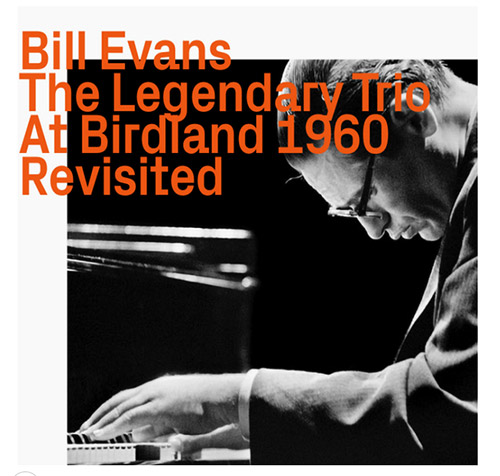


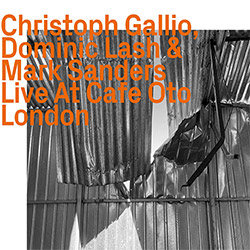

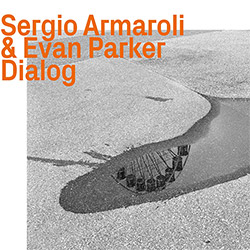


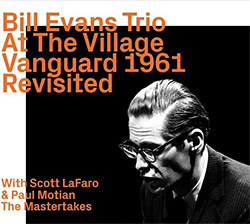
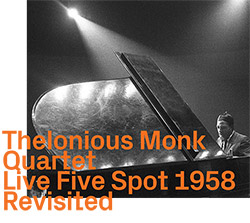
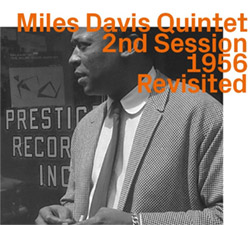

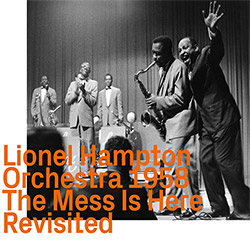
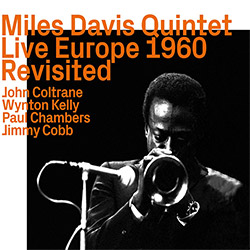
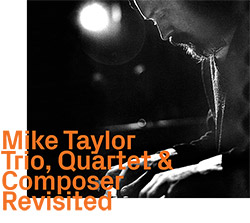
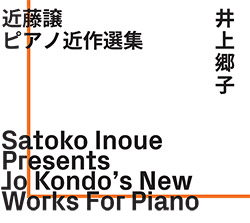

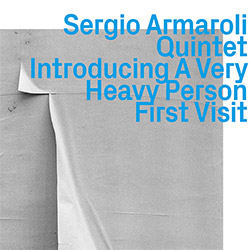

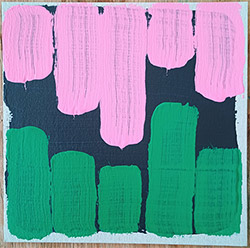
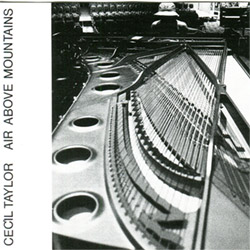



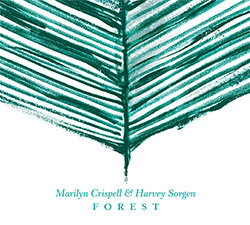
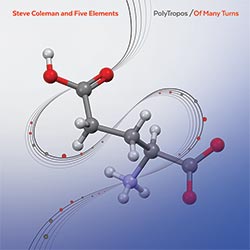
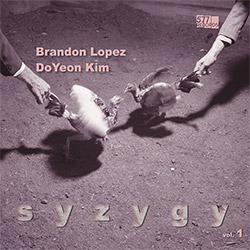






![+DOG+: The Light Of Our Lives [2 CDs]](https://www.teuthida.com/productImages/misc4/36009.jpg)


![Parker, Evan / Jean-Marc Foussat: Insolence [VINYL]](https://www.teuthida.com/productImages/misc4/36398.jpg)










![Deupree, Jerome / Sylvie Courvoisier / Lester St. Louis / Joe Morris: Canyon [2 CDs]](https://www.teuthida.com/productImages/misc4/36404.jpg)


![Eternities: Rides Again [CASSETTE]](https://www.teuthida.com/productImages/misc4/36247.jpg)

![Lopez, Francisco: Untitled (2021-2022) [2 CDs]](https://www.teuthida.com/productImages/misc4/36438.jpg)




![Eventless Plot | Haarvol: The Subliminal Paths [CASSETTE + DOWNLOAD]](https://www.teuthida.com/productImages/misc4/36232.jpg)







![Eventless Plot | Francesco Covarino: Methexis [CASSETTE + DOWNLOAD]](https://www.teuthida.com/productImages/misc4/36231.jpg)



![Das B (Mazen Kerbaj / Mike Majkowski / Magda Mayas / Tony Buck): Love [VINYL]](https://www.teuthida.com/productImages/misc4/36329.jpg)



![Hemphill Stringtet, The: Plays the Music of Julius Hemphill [VINYL]](https://www.teuthida.com/productImages/misc4/36409.jpg)









![Money : Money 2 [2 CDs]](https://www.teuthida.com/productImages/misc4/35894.jpg)




![Klinga, Erik: Elusive Shimmer [VINYL]](https://www.teuthida.com/productImages/misc4/36258.jpg)
![CHANGES TO blind (Phil Zampino): Volume 9 - I Wave on a Fine Vile Mist [CD + DOWNLOAD]](https://www.teuthida.com/productImages/misc4/36061.jpg)

![Wallmart / Rubbish: Asset Protection [split CD]](https://www.teuthida.com/productImages/misc4/35900.jpg)


![+Dog+: The Family Music Book Vol. 5 [2 CDs]](https://www.teuthida.com/productImages/misc4/35897.jpg)
![Kuvveti, Deli : Kuslar Soyledi [CASSETTE w/ DOWNLOAD]](https://www.teuthida.com/productImages/misc4/36107.jpg)

![Nakayama, Tetsuya: Edo Wan [CASSETTE w/ DOWNLOAD]](https://www.teuthida.com/productImages/misc4/36105.jpg)

![Brown, Dan / Dan Reynolds: Live At The Grange Hall [unauthorized][CASSETTE]](https://www.teuthida.com/productImages/misc4/36245.jpg)








![Palestine, Charlemagne / Seppe Gebruers: Beyondddddd The Notessssss [VINYL]](https://www.teuthida.com/productImages/misc4/36206.jpg)
![Palestine, Charlemagne / Seppe Gebruers: Beyondddddd The Notessssss [NEON GREEN VINYL]](https://www.teuthida.com/productImages/misc4/36207.jpg)

![Laubrock, Ingrid: Purposing The Air [2 CDs]](https://www.teuthida.com/productImages/misc4/35639.jpg)

![Yoko, Ono / The Great Learning Orchestra: Selected Recordings From Grapefruit [2 CDs]](https://www.teuthida.com/productImages/misc4/35841.jpg)









![Zorn, John / JACK Quartet: The Complete String Quartets [2 CDs]](https://www.teuthida.com/productImages/misc4/35609.jpg)

![Lonsdale, Eden: Dawnings [2 CDs]](https://www.teuthida.com/productImages/misc4/35480.jpg)



![Sorry For Laughing (G. Whitlow / M. Bates / Dave-Id / E. Ka-Spel): Rain Flowers [2 CDS]](https://www.teuthida.com/productImages/misc4/35985.jpg)

![Rolando, Tommaso / Andy Moor : Biscotti [CASSETTE w/ DOWNLOADS]](https://www.teuthida.com/productImages/misc4/36106.jpg)


![Electric Bird Noise / Derek Roddy: 8-10-22 [CD EP]](https://www.teuthida.com/productImages/misc4/35970.jpg)








![Elephant9 : Mythical River [VINYL]](https://www.teuthida.com/productImages/misc4/34624.jpg)



![Elephant9 with Terje Rypdal: Catching Fire [VINYL 2 LPs]](https://www.teuthida.com/productImages/misc4/35355.jpg)
![Deerlady (Obomsawin, Mali / Magdalena Abrego): Greatest Hits [VINYL]](https://www.teuthida.com/productImages/misc4/34876.jpg)







![Surplus 1980: Illusion of Consistency [CD]](https://www.teuthida.com/productImages/misc4/35069.jpg)
![Staiano, Moe: Away Towards the Light [VINYL + DOWNLOAD]](https://www.teuthida.com/productImages/misc4/35037.jpg)
![Coley, Byron: Dating Tips for Touring Bands [VINYL]](https://www.teuthida.com/productImages/misc4/17906.jpg)

![Lost Kisses: My Life is Sad & Funny [DVD]](https://www.teuthida.com/productImages/misc4/lostKissesDVD.jpg)